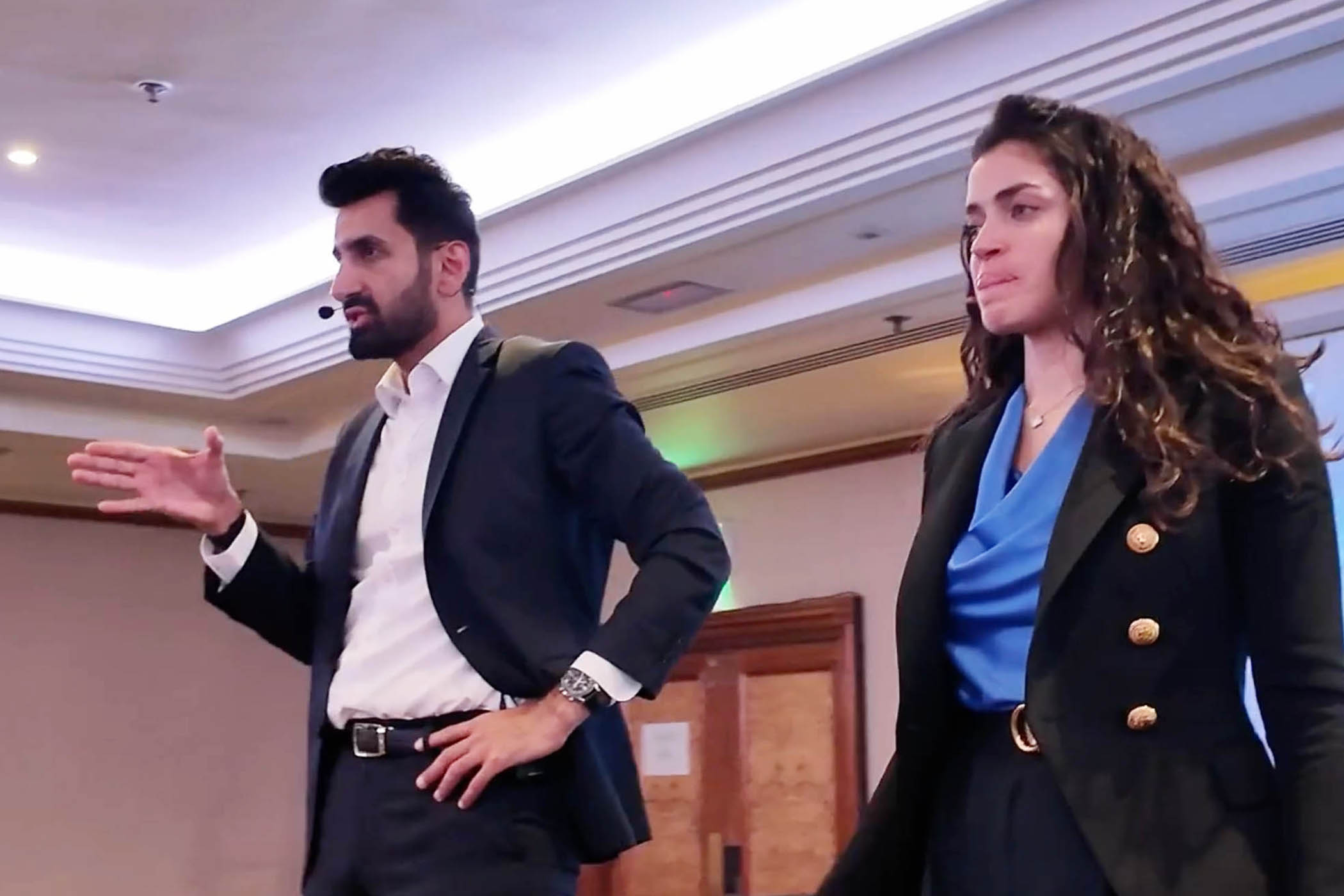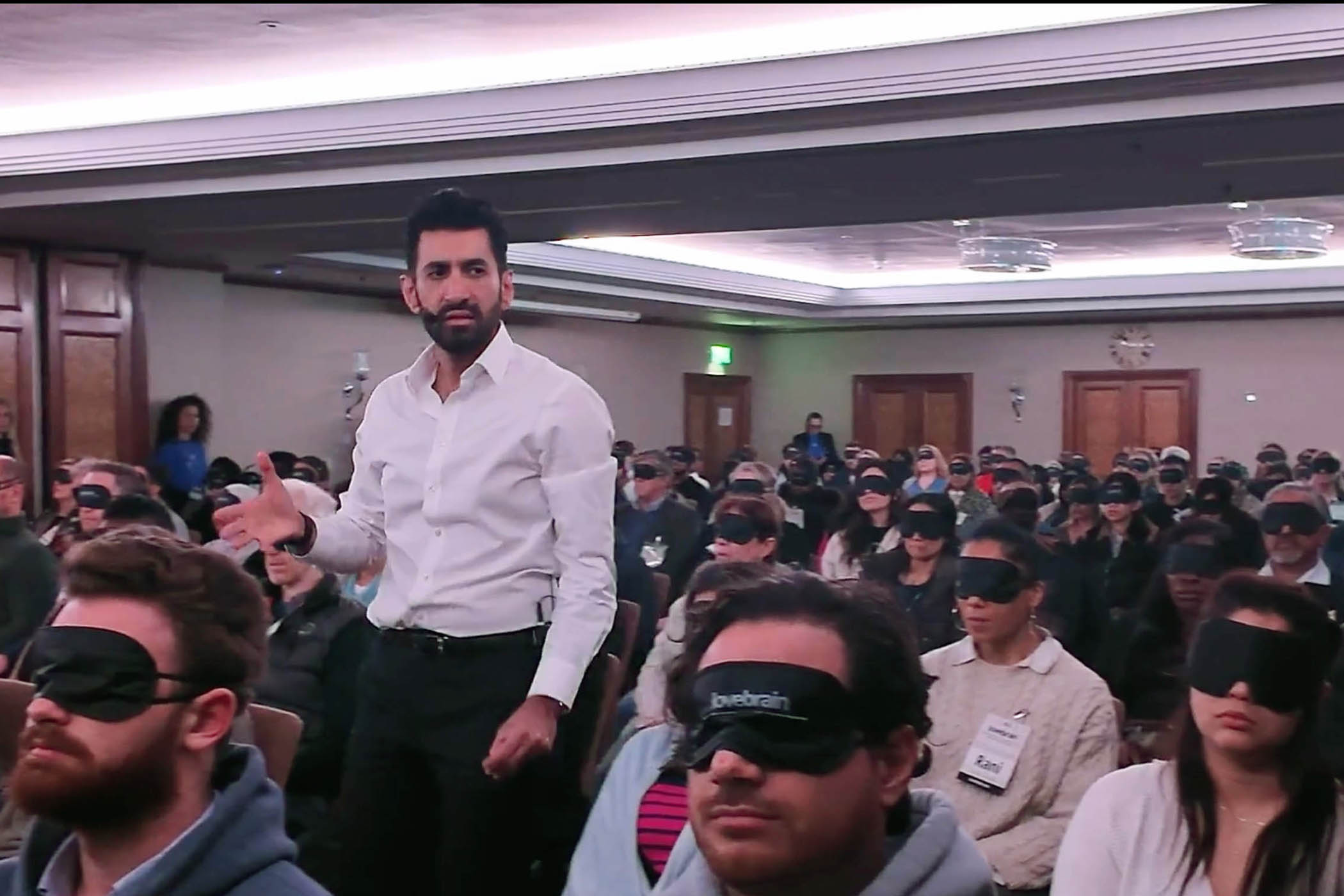A high-end brain-training company claiming to have provided its service to companies including Lloyds Bank, Tesco and Alcoholics Anonymous may have misled consumers, an Observer investigation has revealed.
Lovebrain claims to have trained more than 3,000 people, among them chief executives, company directors and consultants, to improve focus, memory and information processing using techniques based on neuroscience. Prospective students can apply to join its live four-day training programme for £4,900.
But following enquiries from The Observer, WeWork, CBRE and Lloyds Bank confirmed they have not worked with Lovebrain, despite being described as organisations the company “support(s) with cognitive training”. A few weeks ago, Tesco’s logo appeared on the site. But Tesco said the claim it has used Lovebrain’s services is incorrect, and it did not authorise the use of its logo.
“I work with organisations and people – for example, Alcoholics Anonymous,” Lovebrain co-founder and trainer Yousuf Aslam has told prospective students. But when AA checked its records, it found no record of any training from Lovebrain. Lovebrain told The Observer references to AA were “illustrative, not representational of a corporate relationship”. It did not comment on its relationships with WeWork, CBRE and Lloyds Bank.
Lego, Cisco, and BAE Systems are also among the eight companies that have had logos removed from the 16 that featured on the site. The description accompanying the remaining logos has been changed to read: “Organisations whose teams and employees have attended our training.”
The company also says it is “training specialists entrusted to us by the NHS to enhance their cognitive performance”. Freedom of information requests sent to NHS England and the Department for Health and Social Care asking for such contracts revealed they do not have any. Lovebrain countered that FoI requests “would not capture these engagements, as they were delivered at the unit or regional level”.
Participants have described the four-day training sessions, attended by more than 100 participants at a time, as “intense” with 12-hour days and few breaks. Activities involve learning a technique to memorise pi to 50 decimal places, and a group meditation in which individuals are guided to imagine their own death and rebirth, which Lovebrain refers to as a “short reflective sequence”.
Lovebrain was established in 2018 by co-founders Aslam and Francesca Dal Corso. Aslam has built a strong following online with more than 100,000 followers on Instagram and released a podcast series of 46 mini episodes on Spotify. Accounts show the company had an operating cash flow of £274,000 in 2024.
Related articles:
Lovebrain’s offer to help students “overcome a learning difficulty” is a pull factor for many. During a promotional video, a young woman tells the camera: “I used to take ADHD medication, but not since two months ago, when I started the programme.”

Yousuf Aslam and Francesca Dal Corso founders of Lovebrain
Co-founder and trainer Dal Corso tells prospective students her own ADHD means she “should be performing at the bottom percentage when it comes to memory, when it comes to reading, when it comes to processing”. But using Lovebrain’s techniques, she says she has trained her memory to “out-perform 99.999% of the people on the planet”.
Newsletters
Choose the newsletters you want to receive
View more
For information about how The Observer protects your data, read our Privacy Policy
Lovebrain, through these practices, is seeking to capitalise on a burgeoning trend. Globally, the brain fitness industry is booming. The cognitive assessment and training market alone was estimated to be worth $5.7bn in 2024, growing to $33.1bn in 2033. Some argue the rise of artificial intelligence technology will accelerate this growth, mainly by advancing the idea that our brains are replaceable.
But there has long been scientific debate about the efficacy of brain-training activities and games. In 2016, Lumos Labs, the company behind brain-training online game Lumosity, agreed to pay $2m (£1.4m) to settle deceptive marketing charges brought by the US Federal Trade Commission.
“Lumosity preyed on consumers’ fears about age-related cognitive decline, suggesting its games could stave off memory loss, dementia, and even Alzheimer’s disease,” said Jessica Rich, director of the FTC’s Bureau of Consumer Protection. “But Lumosity simply did not have the science to back up its ads.”
A large-scale investigation into the efficacy of brain training, published in 2019 by the scientific journal Frontiers in Human Neuroscience, found “no cognitive advantages for individuals who brain train”, unless that training lasts for an extended period of time.
Training for a year or more resulted in “a higher working-memory and verbal scores”, though these benefits were also observed among people who regularly play computer, board and card games.
The idea that ADHD, dyslexia or other forms of neurodivergence can, or should, be cured is harmful, says Themis Karaminis, a lecturer in psychology at City, University of London. “Neurodivergent people are particularly vulnerable to ableist and pathologising narratives that portray them as ‘disordered versions of themselves’,” he continued. “These narratives reinforce stigma by framing neurodivergent people as broken or defective.”
In a statement to The Observer, Aslam said: “Over the past seven years, Lovebrain has delivered contracted or department-level training to teams within major global organisations including Barclays, EY, Mastercard, Google and others across both the private and public sectors.
“To maintain clarity, our website is periodically updated to distinguish between contracted team training and individual or departmental enrolments, and to ensure our use of company names and logos never implies universal endorsement or national-level contracts.
“We do not claim to cure ADHD, autism, or any form of neurodivergence.”
Video stills from Lovebrain.com


